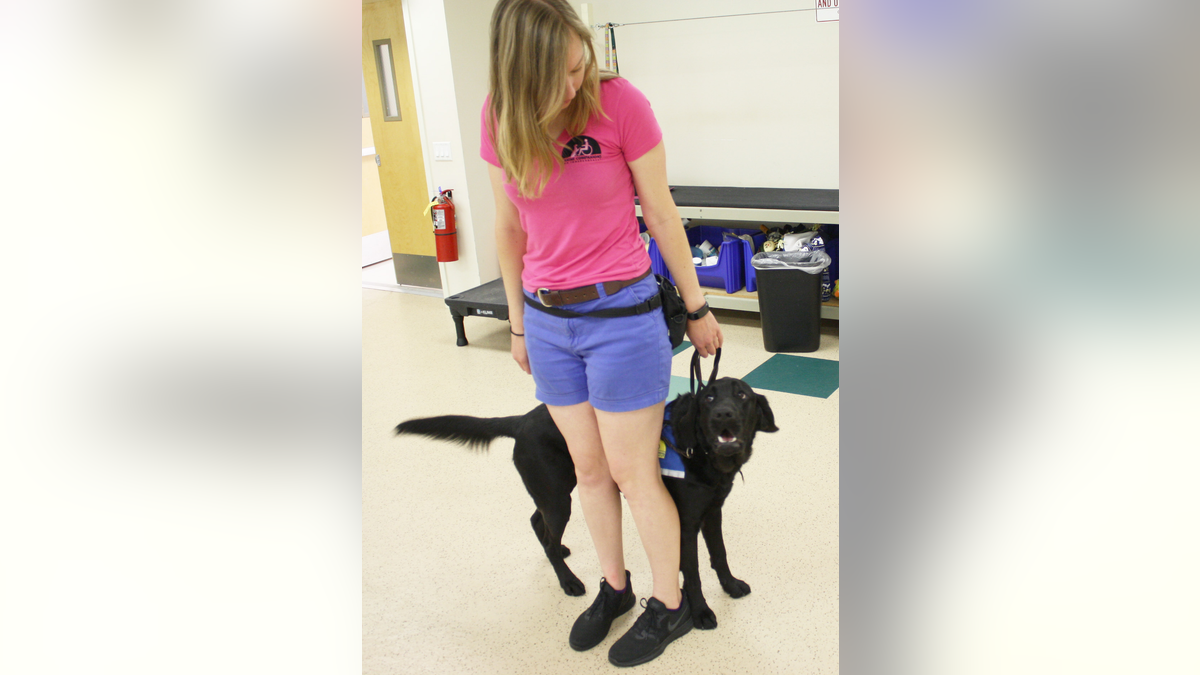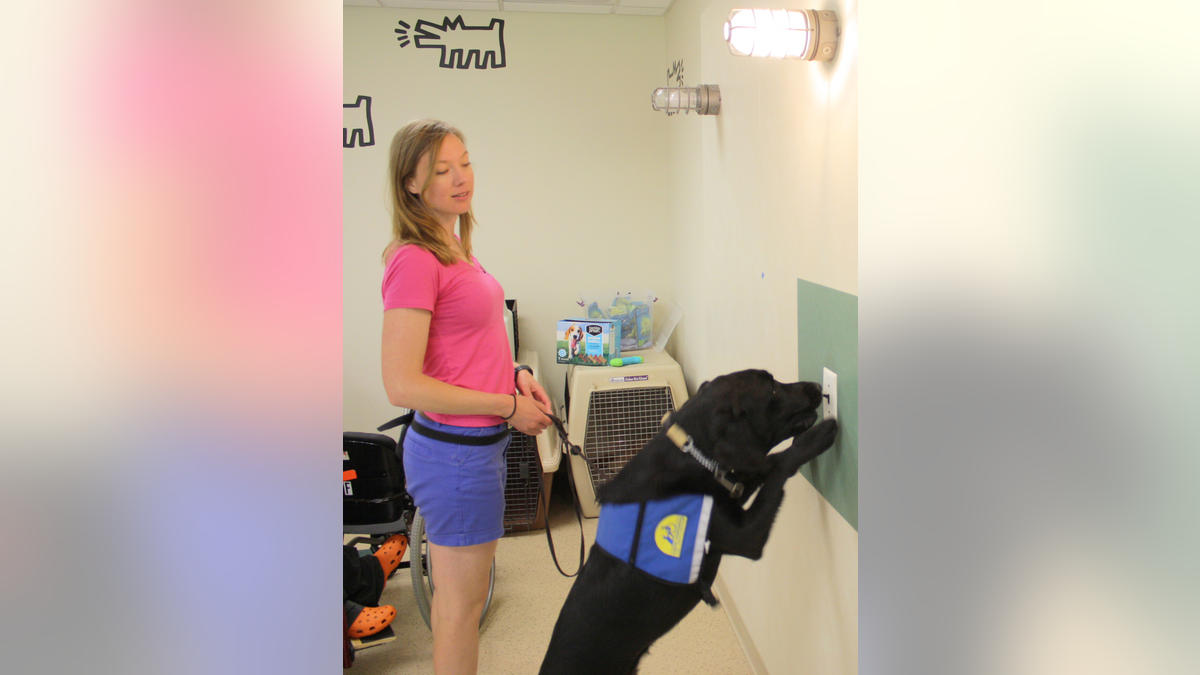Fox News Flash top headlines for June 28
Fox News Flash top headlines for June 28 are here. Check out what's clicking on Foxnews.com
I only have Spike for seven more weeks before we say our goodbyes and he begins the next phase of his career to become a highly trained assistance dog.
But I'm often asked, "What happens next when he goes off to doggy college?"
On Aug. 9, he will begin his professional training with the highly skilled Canine Companions Instructors, who will start assessing him to determine how he can best serve someone with a disability.
Some of the dogs will be picked to go into our new program to help veterans with post traumatic stress disorder (PTSD), a sometimes debilitating condition that results from experiencing a terrifying event. June 27 is National PTSD awareness day, so it’s a good opportunity to focus on how a service dog can assist someone with this condition.
The reality is that too many of our nation’s servicemen and women are returning from duty with PTSD. These veterans can have trouble in social situations such as going out to dinner, going to the grocery store, or even seeing a movie because of the noises and the crowds. Canine Companions for Independence recognized early on that service dogs could really make a difference for people with these symptoms, to help them be part of the community again.
With that in mind, here are a few of the ways Canine Companions can help veterans with PTSD.
Nightmare Interruption

Canine Companions for Independence Instructor Leah Jacobson is training Boise to recognize when the veteran is in distress while sleeping. He will pull the covers off, which will help gently wake the veteran so the nightmare is interrupted. (Canine Companions for Independence)
Many veterans with PTSD have horrible nightmares, the kind you can’t shake. They are often accompanied by incredible restlessness, flailing in bed and/or loud vocalizing. Canine Companions trains their dogs to watch for these cues, which means their partner needs help. Once their dog recognizes these signs, the dog can pull the sheets from the bed, waking an owner gently. The dogs are trained to do this in two different ways: If a veteran has a history of violent nightmares, his or her dog will gently pull their covers off and lay down next to him or her; or, if it’s safe, the dog is trained to jump up on the bed to wake their sleeping partner.
What the dog is doing is helping bring them back to the present moment, letting them know they are home and they are safe — and loved.
Anxiety Interruption

Jacobson is training Boise to recognize certain physical cues that mean the veteran may be in a heightened state of anxiety (notice the head in the hands). Boise is trained to interrupt distract, and provide comfort so this doesn’t manifest in a more severe way. (Canine Companions for Independence)
This is a very common symptom of PTSD. Canine Companions teaches their dogs to recognize many of the major physical cues that humans exhibit when anxious, such as the tapping or bouncing of their foot or leg. We train each dog to recognize this behavior — and to approach their human when they see it, resting their head in the human's lap, providing a welcome distraction and helping break that anxious feeling.
Another physical cue that a veteran may not even realize they exhibit is sitting and holding their face in their hands, rocking back and forth, not paying attention to their immediate surroundings. We train the dog to recognize this too, and interrupt with a gentle nudge or a poke.
THE DAILY SPIKE: THE DO’S AND DONT’S FOR LEAVING YOUR DOG WITH A PET SITTER
'Behind'

Boise and Jacobson are working on the ‘behind’ command. This command creates space for the veteran in a crowded environment. (Canine Companions for Independence)
One reason some of our veterans with PTSD stay at home, isolated, is because they are hyper-vigilant and constantly on the lookout. They are often worried that someone is behind them, impacting their ability to go out and lead a normal life.
We train the dogs to be a buffer, standing behind their partner, when asked. When the dog is behind the human, they create extra space, and the veteran feels protected. This creates a more comfortable environment where they feel safe and confident in public, and able to go about a normal routine. Our dogs can really help these veterans who need an extra push to get out and become part of the world again.
Light

Boise and Jacobson are working on the ‘light’ command. Boise can enter a dark room and turn on the light before the veteran enters. (Canine Companions for Independence)
Fear of the unknown can, in turn, lead to a fear of darkness. Our Canine Companions dogs learn a command called “light” which tells them to enter a dark room ahead of the veteran, targeting the light switch and turning it on. This is useful for some of the veterans who might be uneasy about going into a dark room. It can help the veteran break out of isolation and establish more of a regular routine at home.
FOLLOW US ON FACEBOOK FOR MORE FOX LIFESTYLE NEWS
I’m excited for Spike, no matter what his future holds. It would be a real honor, though, if Spike grew up to be a service dog who helped one of our nation’s veterans. They sacrifice so much for us, this is the least I can do for them.
Visit CCI.org to learn more about Canine Companions for Independence.









































